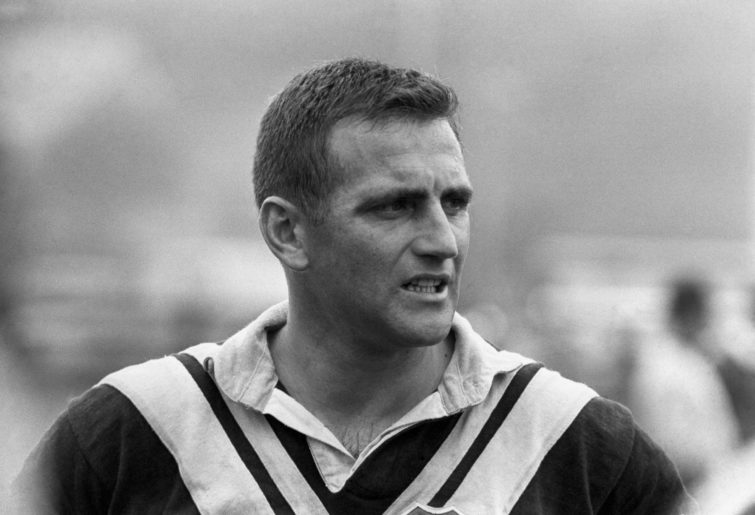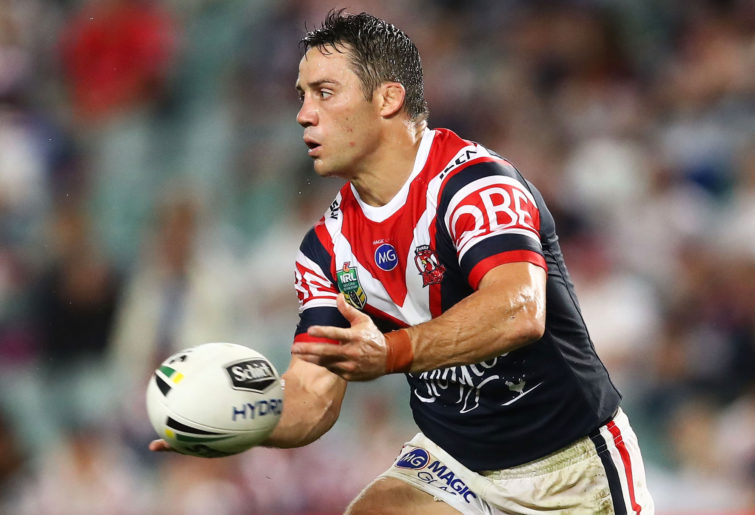In this, the final article in the series dealing with the great grand finalists, I’ll name the greatest grand finalists of all during the last seven decades, from 1950 to 2019.
The selection criteria I have used are:
- the player must have previously been named in the first 13 in one of the best teams of the decade in this series;
- they will only be selected in the position in which they were named in that team; and
- their performances in all grand finals they played in will be taken into account, not just the decade in which they were named in the team.
The aim here is to pick a team of the greatest grand finalists rather than a team of great players who played in a grand final.
In the decades in question there were 71 grand finals decided, including the Super League grand final in 1997. Of these:
- St George won 13;
- South Sydney won ten;
- Manly won eight;
- Sydney Roosters, Canterbury Bankstown and Brisbane won six each;
- Melbourne won five;
- Parramatta won four;
- Canberra won three;
- Newcastle and Penrith each won twice; and
- North Queensland, St George Illawarra, Cronulla, Wests Tigers, Balmain and Western Suburbs Magpies each won once.
Ignoring the bench players, there were 91 absolute champions named in the team for each decade, so whittling that number down to just 13 won’t be an easy task, but here it goes. The year in brackets is the decade the player was selected in this series.
1. Fullback: Clive Churchill (South Sydney, 1950s)
What a hot field for the No. 1 jumper, with four fullbacks in Clive Churchill, Graham Eadie (Manly), Darren Lockyer (Brisbane) and Billy Slater (Melbourne) who’ve each won four grand finals, although Lockyer’s win in 2006 was in the No. 6 jumper. In the end sheer class wins out, and rugby league Immortal Clive Churchill gets the nod. Even as a coach Churchill certainly did love a grand final, taking his Rabbitohs there five times for four victories. Is it any wonder they named the medal for the best player in the grand final after him?
2. Wing: Johnny King (St George, 1960s)
Luckily for King, he was turned down by South Sydney when he trialed for them in 1959 and was then graded by St George. He won seven consecutive grand finals with the Dragons, and it’s unlikely that anyone will ever eclipse his record of scoring tries in six consecutive deciders. King wasn’t the biggest winger to play the game, but had great speed and even better positional sense. He was also a deadly defender and delighted in nailing the opposition’s outside centre when they least expected it.
3. Centre: Reg Gasnier (St George, 1960s)
There hasn’t been a better centre to play the game than Reg Gasnier, and while injuries restricted his career and saw him lost to the game by age 28, he certainly made an impression and was a deserved rugby league Immortal. He played in six consecutive winning grand finals between 1960 and 1965.

Reg Gasnier (Photo by PA Images via Getty Images)
4. Mal Meninga (Canberra, 1980s)
Picking Gasnier’s centre partner was no easy task. Rugby league Immortal Graeme Langlands played in four winning grand finals but was better known as a fullback than a centre. Greg Inglis (Melbourne and South Sydney) won four grand finals, including one each while playing fullback and five-eighth. Both Mick Cronin (Parramatta) and Steve Renouf (Brisbane) won four grand finals and wouldn’t look out of place. But in the end I went with the class and matchwinning ability of Mal Meninga, a rugby league Immortal who led his team to three grand final victories and also played in two losing grand finals.
5. Wing: Eddie Lumsden (St George, 1950s)
Lumsden played four games for Manly after coming to Sydney from Kurri Kurri in 1995 to try his luck in the big smoke, but he was ruled ineligible under the prevailing residential rules. He returned to Sydney in 1957 to join St George, where he met with instant success. Lumsden played in an incredible nine winning grand finals between 1957 and 1966, missing the 1960 decider through injury. He had plenty of pace and was a powerful ball runner who was just as happy to run over the defence as to go around them. Unlucky to miss out were five-time premiership-winning wingers Ray Branighan (South Sydney and Manly) and Michael Hancock (Brisbane) and also Eric Grothe Snr (Parramatta), who won four grand finals.
6. Five-eighth: Brett Kenny (Parramatta, 1980s)
Here’s another hot field to sift through, with some of the greatest players of all time in Brett Kenny, Bob Fulton (Manly), Laurie Daley (Canberra), Brad Fittler (Penrith and Sydney Roosters) and Johnathan Thurston (North Queensland) all with strong claims. In the end I went for Brett Kenny due to his grand final dominance in the early 1980s, winning four grand finals and losing one, and for his scoring try doubles in three consecutive grand final victories in 1981, 1982 and 1983. There hasn’t been a more dominant display than that.
7. Halfback: Cooper Cronk (Melbourne and Sydney Roosters, 2010s)
You know you’re doing well when you can overlook rugby league Immortal Andrew Johns (Newcastle), Brisbane legend Allan Langer and Parramatta’s greatest ever halfback, Peter Sterling, but you can’t top the credentials of Cooper Cronk, who played in an incredible nine grand finals in his 16-year career and won six of them, four for Melbourne and two for the Sydney Roosters, picking up a Clive Churchill medal along the way.

Cooper Cronk. (Photo by Brendon Thorne/Getty Images)
8. Front row: Kevin Ryan (St George and Canterbury-Bankstown)
If you like your front rowers smart enough to be a barrister and strong enough to drop a water buffalo as well as being a heavyweight boxing champion with a fearsome reputation for being the king of the jungle in an era when rugby league was open warfare, then Kevin Ryan is your man. He won seven consecutive premierships with St George and was a big part of their golden run. He also played in one losing grand final for Canterbury-Bankstown.
9. Hooker: Cameron Smith (Melbourne, 2000s)
There haven’t been many more influential players than Cameron Smith, and he certainly knew his way around a grand final, leading Melbourne to seven deciders and winning five. He beats challenges from Dragon greats Ken Kearney and Ian Walsh and also five-time grand final winner Steve Edge (St George and Parramatta).
10. Front row: Glenn Lazarus (Canberra, Melbourne, Brisbane 1990s)
Six grand finals for five victories – yes, there are plenty of players in this team who can match that, but only Glenn Lazarus has achieved premierships at three clubs. Lazarus was the best front rower in the business for most of his career and won two premierships with Canberra, two with Brisbane and one with Melbourne in what was his last match. Other front rowers with strong claims for inclusion were Souths legend Denis Donoghue, rugby league Immortal and three-time grand final winner Arthur Beetson and also John O’Neill, who won multiple premierships with both South Sydney and Manly.
11. Second row: Norm Provan (St George, 1950s)
It’s highly unlikely anyone will ever top rugby league Immortal Norm Provan’s grand final record: ten consecutive grand final victories, the last four as captain-coach.
12. Second row: Ron Coote (South Sydney and Sydney Roosters, 1960s)
Ron Coote was a superstar, and he played in nine grand finals, winning six. The first four victories came with South Sydney and the last two with Sydney Roosters. Apart from goal kicking, there was nothing Coote couldn’t do on the field. He beats fellow Souths legend Jack Rayner for the No. 12 jersey. Rayner captain-coached Souths to seven grand finals and won five.
13. Lock forward: Johnny Raper (St George, 1960s)
Raper is a rugby league Immortal who played in eight consecutive grand final wins. He really had no serious opposition for the No. 13 jersey. Was he the greatest player of all time? He was certainly the best I ever saw.
I’ll be interested to read your comments and to hear about who was unfairly left out. Thanks for reading the series.






























































































